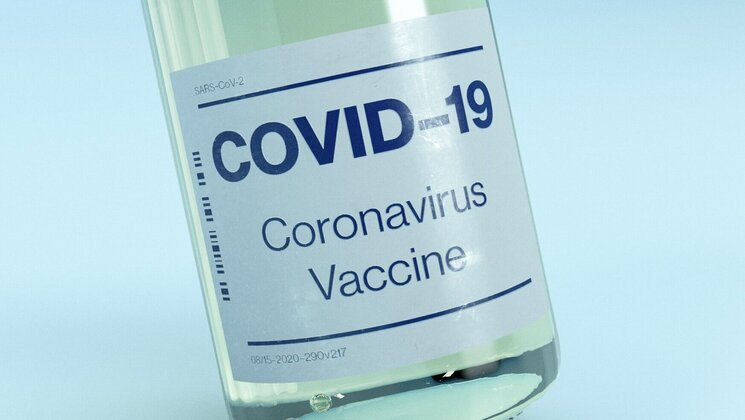-
Faculty of Arts and HumanitiesJakobi 2, r 116-121 51005 Tartu linn, Tartu linn, Tartumaa ESTJakobi 2 51005 Tartu linn, Tartu linn, Tartumaa ESTJakobi 2, IV korrus 51005 Tartu linn, Tartu linn, Tartumaa ESTJakobi 2, III korrus, ruumid 302-337 51005 Tartu linn, Tartu linn, Tartumaa ESTÜlikooli 16 51003 Tartu linn, Tartu linn, Tartumaa ESTLossi 3 51003 Tartu linn, Tartu linn, Tartumaa ESTÜlikooli 18 50090 Tartu linn, Tartu linn, Tartumaa ESTPosti 1 71004 Viljandi linn, Viljandimaa ESTJakobi 2 51005 Tartu linn, Tartu linn, Tartumaa ESTJakobi 2 51005 Tartu linn, Tartu linn, Tartumaa ESTFaculty of Social SciencesLossi 36 51003 Tartu linn, Tartu linn, Tartumaa ESTJakobi 5 51005 Tartu linn, Tartu linn, Tartumaa ESTLossi 36, ruum 301 51003 Tartu linn, Tartu linn, Tartumaa ESTNarva mnt 18 51009 Tartu linn, Tartu linn, Tartumaa ESTNäituse 2 50409 Tartu linn, Tartu linn, Tartumaa ESTNäituse 20 - 324 50409 Tartu linn, Tartu linn, Tartumaa ESTLossi 36 51003 Tartu linn, Tartu linn, Tartumaa ESTRaekoja plats 2 20307 Narva linn, Ida-Virumaa ESTRingi 35 80012 Pärnu linn, Pärnu linn, Pärnumaa ESTLossi 36 51003 Tartu linn, Tartu linn, Tartumaa ESTLossi 36 51003 Tartu linn, Tartu linn, Tartumaa ESTFaculty of MedicineRavila 19 50411 Tartu linn, Tartu linn, Tartumaa ESTBiomeedikum, Ravila 19 50411 Tartu linn, Tartu linn, Tartumaa ESTNooruse 1 50411 Tartu linn, Tartu linn, Tartumaa ESTL. Puusepa 1a 50406 Tartu linn, Tartu linn, Tartumaa ESTL. Puusepa 8 50406 Tartu linn, Tartu linn, Tartumaa ESTRavila 19 50411 Tartu linn, Tartu linn, Tartumaa ESTUjula 4 51008 Tartu linn, Tartu linn, Tartumaa ESTRavila 50411 Tartu linn, Tartu linn, Tartumaa ESTRavila 19 50411 Tartu linn, Tartu linn, Tartumaa ESTFaculty of Science and TechnologyVanemuise 46 - 208 51003 Tartu linn, Tartu linn, Tartumaa ESTNarva mnt 18 51009 Tartu linn, Tartu linn, Tartumaa ESTRiia 23b/2 51010 Tartu linn, Tartu linn, Tartumaa ESTRavila 14a 50411 Tartu linn, Tartu linn, Tartumaa ESTNarva mnt 18 51009 Tartu linn, Tartu linn, Tartumaa ESTRiia 23, 23b - 134 51010 Tartu linn, Tartu linn, Tartumaa ESTObservatooriumi 1 61602 Tõravere alevik, Nõo vald, Tartumaa ESTNooruse 1 50411 Tartu linn, Tartu linn, Tartumaa ESTJ. Liivi tn 2 50409 Tartu linn, Tartu linn, Tartumaa ESTVanemuise 46 51003 Tartu linn, Tartu linn, Tartumaa ESTVanemuise 46 51003 Tartu linn, Tartu linn, Tartumaa ESTArea of Academic SecretaryLossi 3 51003 Tartu linn, Tartu linn, Tartumaa ESTUppsala 6, Lossi 36 51003 Tartu linn, Tartu linn, Tartumaa ESTArea of Head of FinanceÜlikooli 17 51005 Tartu linn, Tartu linn, Tartumaa ESTArea of Director of AdministrationÜlikooli 18A (III korrus) 51005 Tartu linn, Tartu linn, Tartumaa ESTÜlikooli 18, ruumid 102, 104, 209, 210 50090 Tartu linn, Tartu linn, Tartumaa ESTArea of Vice Rector for ResearchW. Struve 1 50091 Tartu linn, Tartu linn, Tartumaa ESTArea of Vice Rector for DevelopmentNarva mnt 18 51009 Tartu linn, Tartu linn, Tartumaa ESTVanemuise 46 51003 Tartu linn, Tartu linn, Tartumaa ESTLossi 25 51003 Tartu linn, Tartu linn, Tartumaa ESTArea of RectorArea of Vice Rector for Academic AffairsUppsala 10 51003 Tartu linn, Tartu linn, Tartumaa ESTÜlikooli 18b 51005 Tartu linn, Tartu linn, Tartumaa EST
17.05.2017
Liina Haring will defend her PhD on May 19th
Liina Haring will defend her PhD on May 19th at 14.00 in in auditorium A. Linkberg (Puusepa 8)
„Cognitive functioning after first psychotic episode“
Supervisors:
René Mõttus (PhD, The University of Edinburghi Ülikool, Department of Psycholgy; University of Tartu, Faculty of Social Sciences, Institute of Psychology)
Prof Aleksandr Žarkovski (MD, PhD, University of Tartu, Institute of Biomedicine and Translational Medicine, Department of Pharmacology)
Prof Eduard Maron (MD, PhD, University of Tartu, Institute of Clinical Medicine, Department of Psychiatry; The North Estonia Medical Centre)
René Mõttus (PhD, The University of Edinburghi Ülikool, Department of Psycholgy; University of Tartu, Faculty of Social Sciences, Institute of Psychology)
Prof Aleksandr Žarkovski (MD, PhD, University of Tartu, Institute of Biomedicine and Translational Medicine, Department of Pharmacology)
Prof Eduard Maron (MD, PhD, University of Tartu, Institute of Clinical Medicine, Department of Psychiatry; The North Estonia Medical Centre)
Oponent:
Annamari Tuulio-Henriksson, PhD, Research Professor, The Social Insurance Institution, Helsinki, Finland.
Annamari Tuulio-Henriksson, PhD, Research Professor, The Social Insurance Institution, Helsinki, Finland.
Cognitive functioning after first psychotic episode
Schizophrenia is a severe psychiatric disorder that has a strong biological basis and is characterized by disturbances in perception, thought, emotion, and behavior. In the field of psychiatric research, there is growing interest in the early stage of the chronic psychotic disorder and mounting evidence suggests that compromised cognitive function is a core feature of the illness.
Aims of the research were to characterize cognitive functioning of the first-episode psychosis/schizophrenia patients, and to study its relationships with subjectively perceived cognitive functioning and brain morphological parameters.
A comprehensive computer-based neuropsychological battery was used. The battery included tests designed to assess subjects’ pattern and spatial recognition memory capacity, learning and rapid visual information processing abilities, shifting and flexibility of attention, spatial planning and executive functioning, and to evaluate participants’ ability to retain spatial information and manipulate these remembered items in their working memory, and to use strategies. Objective and subjective mental functioning data were collected at baseline and follow-up measures were completed approximately six months later, in the patients’ group. We used magnet resonance imaging technique to evaluate brain morphological (i.e., cortical thickness and cortical area) parameters.
The results indicated that patients exhibited widespread cognitive impairments, and that the structure of underlying cognitive abilities as measured by a selection of neuropsychological tests is not the same for healthy individuals and patients with first-episode psychosis. The findings suggested that there is variability in the type, direction, and size of the changes of different cognitive functions over time among patients with first psychotic episode. Objectively measured and sujectively perceived cognitive functioning are two distinct and probably complementary constructs, and should be measured separately in order to attain a more comprehensive assessment of each patient’s day-to-day functioning. Furthermore, we demonstrated that morphological changes in frontal, temporal, parietal, and cingulate cortices may be related to the altered cognitive functioning among patients and that the brain structure-function relationships may be dissimilar for patients with first psychotic episode and healthy subjects. Our findings support continued efforts to elucidate cognitive dysfunction as a characteristic feature of the early stage of chronic psychotic disorder.
Schizophrenia is a severe psychiatric disorder that has a strong biological basis and is characterized by disturbances in perception, thought, emotion, and behavior. In the field of psychiatric research, there is growing interest in the early stage of the chronic psychotic disorder and mounting evidence suggests that compromised cognitive function is a core feature of the illness.
Aims of the research were to characterize cognitive functioning of the first-episode psychosis/schizophrenia patients, and to study its relationships with subjectively perceived cognitive functioning and brain morphological parameters.
A comprehensive computer-based neuropsychological battery was used. The battery included tests designed to assess subjects’ pattern and spatial recognition memory capacity, learning and rapid visual information processing abilities, shifting and flexibility of attention, spatial planning and executive functioning, and to evaluate participants’ ability to retain spatial information and manipulate these remembered items in their working memory, and to use strategies. Objective and subjective mental functioning data were collected at baseline and follow-up measures were completed approximately six months later, in the patients’ group. We used magnet resonance imaging technique to evaluate brain morphological (i.e., cortical thickness and cortical area) parameters.
The results indicated that patients exhibited widespread cognitive impairments, and that the structure of underlying cognitive abilities as measured by a selection of neuropsychological tests is not the same for healthy individuals and patients with first-episode psychosis. The findings suggested that there is variability in the type, direction, and size of the changes of different cognitive functions over time among patients with first psychotic episode. Objectively measured and sujectively perceived cognitive functioning are two distinct and probably complementary constructs, and should be measured separately in order to attain a more comprehensive assessment of each patient’s day-to-day functioning. Furthermore, we demonstrated that morphological changes in frontal, temporal, parietal, and cingulate cortices may be related to the altered cognitive functioning among patients and that the brain structure-function relationships may be dissimilar for patients with first psychotic episode and healthy subjects. Our findings support continued efforts to elucidate cognitive dysfunction as a characteristic feature of the early stage of chronic psychotic disorder.
Read more similar news






